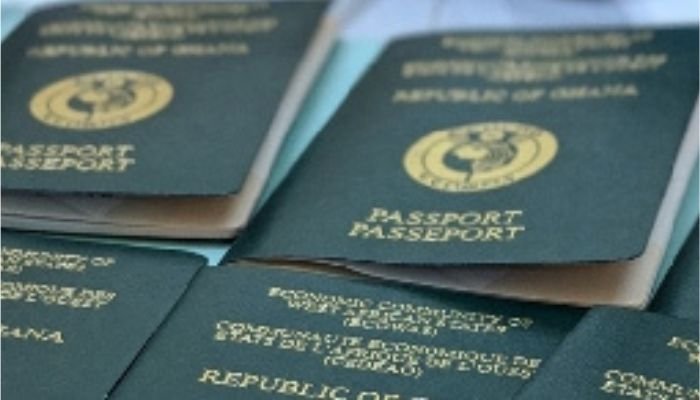Nigeria is making a bold step forward in its bid to digitise citizenship and business regulation. In May 2025, the Federal Ministry of Interior formally launched the Citizenship and Business Management Portal (C&B Portal) — an integrated digital gateway to manage business permits, expatriate quotas, residence applications, and citizenship matters.
“However, the new fee structure introduces what may be a prohibitive cost barrier to medium-sized businesses or niche investors.”
“The path is made by walking.” — African Proverb
This development, while technical on the surface, signals a deeper shift in how the government interacts with businesses and expatriates. For CEOs, HR leaders, compliance officers, and foreign investors, this is not merely an IT upgrade. It is a governance reset.
What has changed?
Effective onboarding to the platform is now mandatory for access to services previously handled manually or through third-party interfaces. Users are to authenticate at https://candb.interior.gov.ng, upload valid company documents, and verify corporate identity.
The platform replaces older channels like [ecitibiz.com], which are now officially unauthorised. It also introduces a restructured fee regime, ranging from:
· ₦1.5 million for business permits (Ltd/LLP)
· ₦1 million for expatriate quota establishment
· $2,000 for e-CERPAC
· ₦15 million for Nigerian citizenship by naturalisation or registration
· Up to $10,000 for PUR quota revalidation after 10 years
While the ministry touts these reforms as part of a service-enhancement strategy, the implications — both enabling and burdensome — require sober reflection by the private sector.
What it means for employers
1. Increased compliance costs and risk
The sharp upward review of fees, particularly around expatriate management and citizenship, will impact operational budgets — especially for businesses managing multinational workforces. Companies must now embed immigration costs into strategic workforce planning, lest they be caught off guard.
The fee for upgrading an expatriate quota to the Permanent Until Reviewed (PUR) status, for instance, now sits at ₦20 million, while even a redesignation costs ₦10 million. These are not marginal increases. They are paradigm shifts.
2. Pressure on internal governance
With digitisation comes auditability. Every document, permit, and quota request is now logged and reviewable in real time. This removes the cushion of informal handling and puts a spotlight on internal governance. Employers must ensure their HR, legal, and compliance teams are properly aligned — not only with the new interface but with its procedural demands.
3. Reduced friction, if used strategically
The upside is clear: no more middlemen, opaque processes, or weeks lost to couriered files. Organisations that quickly master the portal can reduce turnaround times on expatriate applications, minimise regulatory breaches, and build a credible compliance profile with regulators.
In a climate where Nigeria is wooing investors while tightening fiscal and labour regulations, digital transparency could prove to be a competitive edge.
Read also: A new era of efficiency begins with launch of citizenship and business management platform
What it means for foreign talent and investors
1. A more predictable immigration system
Foreign professionals and investors have long complained about Nigeria’s disjointed and often unpredictable entry pathways. If the portal delivers on its promise, it will allow prospective entrants to see requirements, track statuses, and plan engagements with clarity.
2. Barriers to entry for smaller investors
However, the new fee structure introduces what may be a prohibitive cost barrier to medium-sized businesses or niche investors. The ₦15 million citizenship fee or ₦5 million residence permit charge, for instance, may be manageable for multinationals but exclusionary for SMEs seeking to expand organically into Nigeria.
The government must watch this trend closely to avoid digitising inequality.
Strategic recommendations:
For employers:
· Conduct a cost impact assessment of the new fee regime on your expatriate and compliance budgets.
· Appoint a dedicated officer or unit to oversee portal interactions, ensuring data integrity and deadline tracking.
· Engage legal counsel to review existing expatriate quota terms in light of the new upgrade and revalidation provisions.
For policymakers:
· Consider phased implementation of the higher fee brackets for SMEs.
· Invest in public awareness campaigns to demystify the portal’s usage.
· Provide a feedback mechanism for users to report challenges and inconsistencies during onboarding.
Final thought
The new Citizenship and Business Portal is not just a website. It is an inflection point in Nigeria’s regulatory evolution. If executed with integrity and feedback, it can streamline bureaucratic engagement and restore investor confidence. If enforced without sensitivity, it may widen the gap between policy intention and business reality.
In the end, as the African proverb reminds us, the path is made by walking. For the Ministry of Interior, this is a bold first step. For businesses, it’s time to lace up.
Dr Olufemi Ogunlowo is CEO of Strategic Outsourcing Limited and writes on the intersection of technology, talent management, and organisational transformation for BusinessDay.

